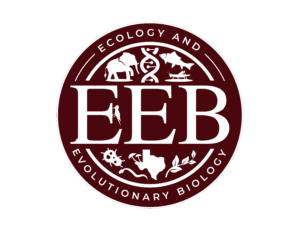Thomas Brooks, Ph.D.
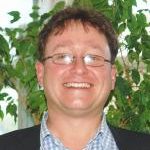 Thomas Brooks heads science and knowledge at the International Union for Conservation of Nature (IUCN), based in Gland, Switzerland. Originally from Brighton, UK, holds a B.A. (Hons) in Geography from the University of Cambridge (1993) and a Ph.D. in Ecology and Evolutionary Biology from the University of Tennessee (1998). He has previously worked for The Nature Conservancy (1998–1999), Conservation International (1999–2010), and most recently NatureServe (2010–2012) where he was Vice President for Science and Chief Scientist. He holds visiting positions at ICRAF-the World Agroforestry Center in the University of the Philippines Los Baños and in the Department of Geography of the University of Tasmania. He is an ornithologist by training, with extensive field experience in tropical forests of Asia, South America and Africa. His interests lie in threatened species conservation (especially of birds) and in biodiversity hotspots (especially in tropical forests). He has been a member of the IUCN Red List Committee since 2001, the Steering Committee of its Species Survival Commission since 2004, and co-chair of its joint taskforce on ‘Biodiversity and Protected Areas’ since 2009. He has authored 198 scientific and popular articles of which 22 have been in Nature or Science.
Thomas Brooks heads science and knowledge at the International Union for Conservation of Nature (IUCN), based in Gland, Switzerland. Originally from Brighton, UK, holds a B.A. (Hons) in Geography from the University of Cambridge (1993) and a Ph.D. in Ecology and Evolutionary Biology from the University of Tennessee (1998). He has previously worked for The Nature Conservancy (1998–1999), Conservation International (1999–2010), and most recently NatureServe (2010–2012) where he was Vice President for Science and Chief Scientist. He holds visiting positions at ICRAF-the World Agroforestry Center in the University of the Philippines Los Baños and in the Department of Geography of the University of Tasmania. He is an ornithologist by training, with extensive field experience in tropical forests of Asia, South America and Africa. His interests lie in threatened species conservation (especially of birds) and in biodiversity hotspots (especially in tropical forests). He has been a member of the IUCN Red List Committee since 2001, the Steering Committee of its Species Survival Commission since 2004, and co-chair of its joint taskforce on ‘Biodiversity and Protected Areas’ since 2009. He has authored 198 scientific and popular articles of which 22 have been in Nature or Science.
Bruce Menge, Ph.D.
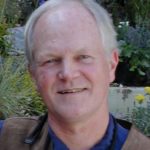 Bruce A. Menge is a Distinguished Professor of Zoology and the Wayne and Gladys Valley Endowed Professor of Marine Biology in the Department of Zoology at Oregon State University. He also served as Chair of the Department from 2008-2011. His major research areas are marine community and meta-ecosystem ecology, and physiological ecology, and he is currently focused on the impacts of climate change, including ocean acidification, on coastal marine ecosystems. He received a BA in Zoology at the University of Minnesota in 1965 and a PhD in Zoology at the University of Washington in 1970. He is the lead PI in PISCO, the Partnership for Interdisciplinary Studies of Coastal Oceans, OMEGAS, the Ocean Margin Ecosystem Group for Acidification Studies, and ACIDIC, Algal Communities in Distress: Impacts and Consequences. He is a member and Fellow of the American Association for the Advancement of Science, and a member of the Ecological Society of America, the American Society of Naturalists, and the Society of Limnology and Oceanography. Professor Menge has authored or co-authored >125 refereed research papers. Honors include the George Mercer Award (1979) for the Best Paper in Ecology during the previous year, a John Simon Guggenheim Fellowship (1994-95), an Honorary Doctor of Science degree at Long Island University (1999), recognition as one of the 0.5% of the most cited ecologists over the past two decades (ISI Highly Cited.com, 2002), and the Western Society of Naturalists’ Lifetime Achievement Award (2010).
Bruce A. Menge is a Distinguished Professor of Zoology and the Wayne and Gladys Valley Endowed Professor of Marine Biology in the Department of Zoology at Oregon State University. He also served as Chair of the Department from 2008-2011. His major research areas are marine community and meta-ecosystem ecology, and physiological ecology, and he is currently focused on the impacts of climate change, including ocean acidification, on coastal marine ecosystems. He received a BA in Zoology at the University of Minnesota in 1965 and a PhD in Zoology at the University of Washington in 1970. He is the lead PI in PISCO, the Partnership for Interdisciplinary Studies of Coastal Oceans, OMEGAS, the Ocean Margin Ecosystem Group for Acidification Studies, and ACIDIC, Algal Communities in Distress: Impacts and Consequences. He is a member and Fellow of the American Association for the Advancement of Science, and a member of the Ecological Society of America, the American Society of Naturalists, and the Society of Limnology and Oceanography. Professor Menge has authored or co-authored >125 refereed research papers. Honors include the George Mercer Award (1979) for the Best Paper in Ecology during the previous year, a John Simon Guggenheim Fellowship (1994-95), an Honorary Doctor of Science degree at Long Island University (1999), recognition as one of the 0.5% of the most cited ecologists over the past two decades (ISI Highly Cited.com, 2002), and the Western Society of Naturalists’ Lifetime Achievement Award (2010).
Gary Mittelbach, Ph.D.
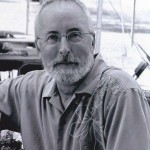 Gary G. Mittelbach is a Professor at the Kellogg Biological Station and the Department of Zoology at Michigan State University. He graduated with a B.A. from the University of Iowa (1974) and earned his Ph.D. at Michigan State University (1980) working under Dr. Earl Werner. Dr. Mittelbach is recognized as a Highly Cited Researcher by ISI®, is currently on the Board of Editors for Global Ecology and Biogeography, and is the author of Community Ecology (published 2012 by Sinauer Associates). His research interests include biogeography, community ecology, the generation and maintenance of biodiversity, freshwater ecology, and species interactions.
Gary G. Mittelbach is a Professor at the Kellogg Biological Station and the Department of Zoology at Michigan State University. He graduated with a B.A. from the University of Iowa (1974) and earned his Ph.D. at Michigan State University (1980) working under Dr. Earl Werner. Dr. Mittelbach is recognized as a Highly Cited Researcher by ISI®, is currently on the Board of Editors for Global Ecology and Biogeography, and is the author of Community Ecology (published 2012 by Sinauer Associates). His research interests include biogeography, community ecology, the generation and maintenance of biodiversity, freshwater ecology, and species interactions.
Jorge Soberon, Ph.D.
 Jorge Soberon is Professor and Senior Scientist at the University of Kansas, where he works on the theory of areas of distribution of species, their integration in biodiversity patterns, and on biodiversity policy. He was trained as a biologist and a biogeographer in the National University of Mexico, and he got his PhD in Theoretical Ecology at Imperial College, University of London. For thirteen years he directed Mexico’s national agency on biodiversity, where he was directly involved in decision making in relation to conservation, threatened species, invasive species and management of protected areas.
Jorge Soberon is Professor and Senior Scientist at the University of Kansas, where he works on the theory of areas of distribution of species, their integration in biodiversity patterns, and on biodiversity policy. He was trained as a biologist and a biogeographer in the National University of Mexico, and he got his PhD in Theoretical Ecology at Imperial College, University of London. For thirteen years he directed Mexico’s national agency on biodiversity, where he was directly involved in decision making in relation to conservation, threatened species, invasive species and management of protected areas.
Michael Willig, Ph.D.
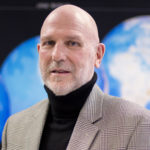 Michael R. Willig is a Professor of Ecology & Evolutionary Biology, as well as the founding Director of the Center for Environmental Sciences & Engineering, at the University of Connecticut (2006-present). Prior to that, he was a long-term member (> 20 years) of the faculty in the Department of Biological Sciences at Texas Tech University, where he was Chairman of the Department (1995-1997) as well as Director of the Institute for Environmental Studies (1994-1996). In addition, he has served the National Science Foundation in two capacities, as a Program Director in Ecology (2000-2002) and as Division Director for Environmental Biology (2004-2006). He graduated with a BS (1974) and PhD (1981) degrees from the University of Pittsburgh. Michael is the author or co-author of ~ 195 scholarly publications and books, and has enjoyed over twenty million dollars of grant support from federal agencies (e.g., NSF, NIH, USDA, EPA). He recently co-edited three books: Theory of Ecology (2011), A Caribbean Forest Tapestry (2012), and Ecological Gradient Analyses in Tropical Ecosystems (In Press). His research assumes a quantitative approach and evolutionary perspective, is rooted firmly in natural history, and addresses a number of questions in population biology, community ecology, conservation, or biogeography. He has conducted extensive research in Latin America (i.e., Brazil, Paraguay, and Peru), and was a founding collaborator and current co-PI on the NSF-funded Luquillo Mountains Long-Term Ecological Research Program in Puerto Rico. The conceptual thrusts of his research include (1) gradients of diversity and range size, (2) productivity – diversity relationships, particularly their scale dependence, (3) biogeography and macroecology of island faunas, (4) conservation reserve design at broad spatial scales, (5) effects of reduced impact logging on populations and communities in the Amazon, (6) disturbance ecology, especially in the hurricane-prone Caribbean, and (7) metacommunity ecology.
Michael R. Willig is a Professor of Ecology & Evolutionary Biology, as well as the founding Director of the Center for Environmental Sciences & Engineering, at the University of Connecticut (2006-present). Prior to that, he was a long-term member (> 20 years) of the faculty in the Department of Biological Sciences at Texas Tech University, where he was Chairman of the Department (1995-1997) as well as Director of the Institute for Environmental Studies (1994-1996). In addition, he has served the National Science Foundation in two capacities, as a Program Director in Ecology (2000-2002) and as Division Director for Environmental Biology (2004-2006). He graduated with a BS (1974) and PhD (1981) degrees from the University of Pittsburgh. Michael is the author or co-author of ~ 195 scholarly publications and books, and has enjoyed over twenty million dollars of grant support from federal agencies (e.g., NSF, NIH, USDA, EPA). He recently co-edited three books: Theory of Ecology (2011), A Caribbean Forest Tapestry (2012), and Ecological Gradient Analyses in Tropical Ecosystems (In Press). His research assumes a quantitative approach and evolutionary perspective, is rooted firmly in natural history, and addresses a number of questions in population biology, community ecology, conservation, or biogeography. He has conducted extensive research in Latin America (i.e., Brazil, Paraguay, and Peru), and was a founding collaborator and current co-PI on the NSF-funded Luquillo Mountains Long-Term Ecological Research Program in Puerto Rico. The conceptual thrusts of his research include (1) gradients of diversity and range size, (2) productivity – diversity relationships, particularly their scale dependence, (3) biogeography and macroecology of island faunas, (4) conservation reserve design at broad spatial scales, (5) effects of reduced impact logging on populations and communities in the Amazon, (6) disturbance ecology, especially in the hurricane-prone Caribbean, and (7) metacommunity ecology.

